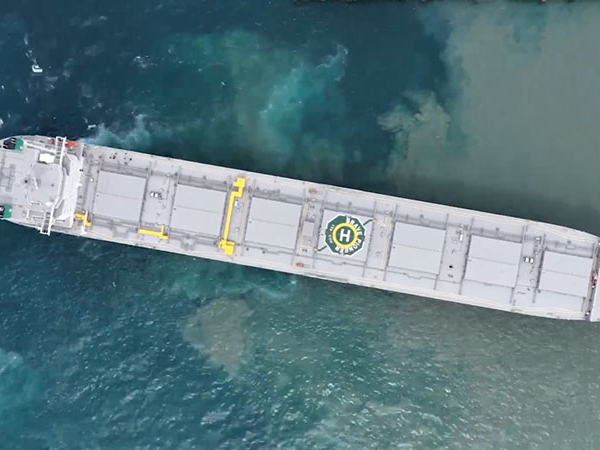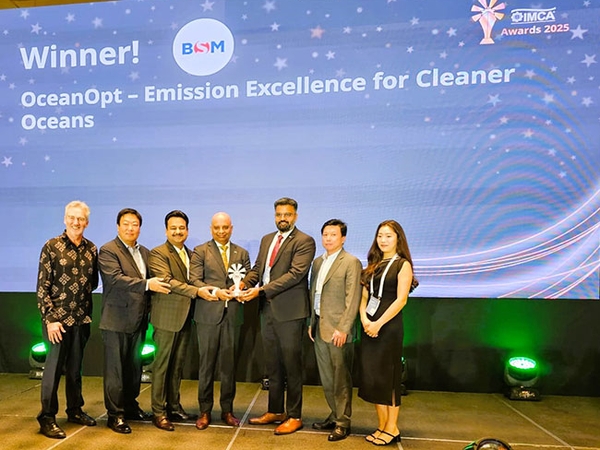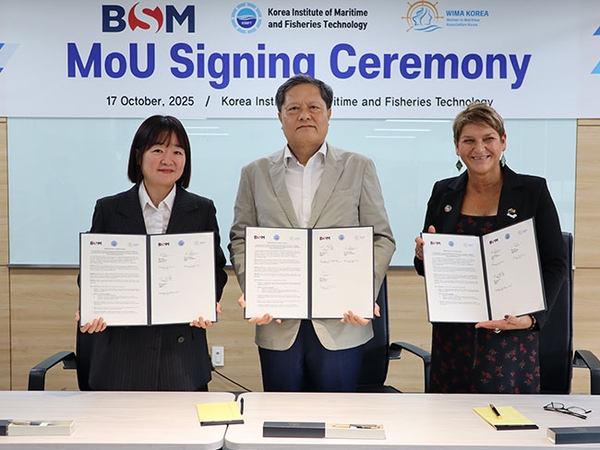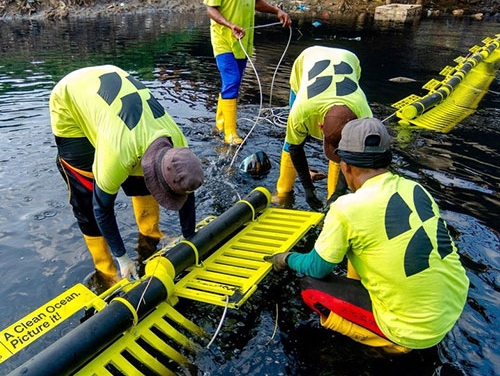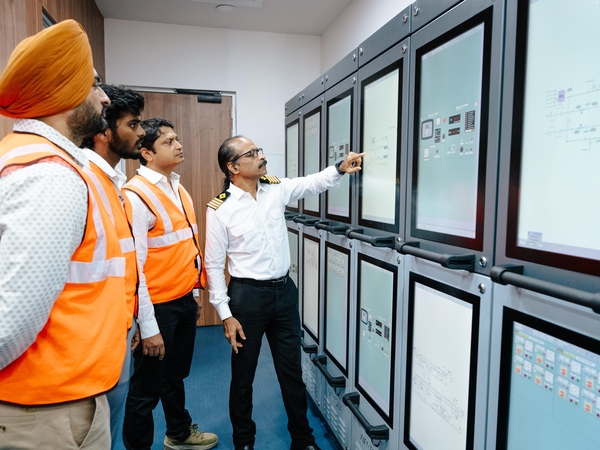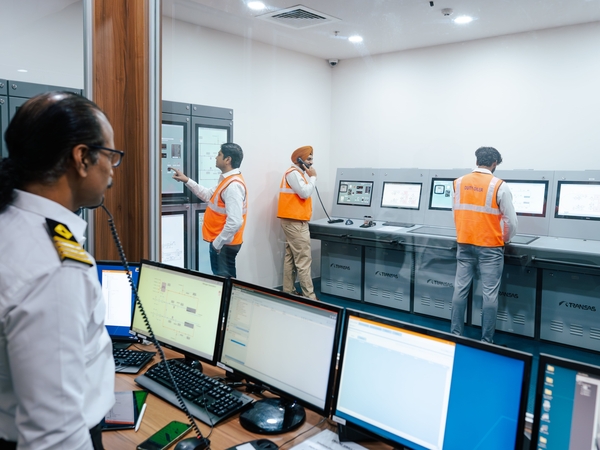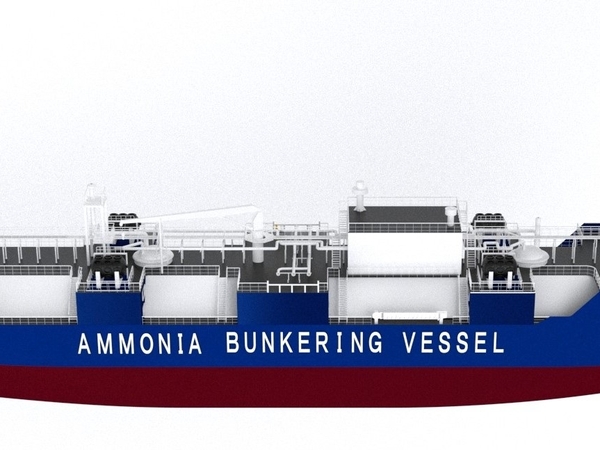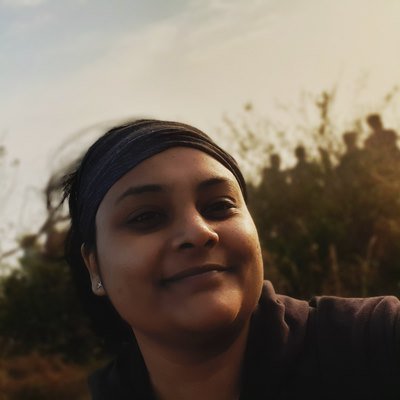
Nini Kumari (India SMC) Technical Officer
What is your academic background and was science your passion while growing up?
I completed my Bachelor of Technology in Marine Engineering in 2015 at the Neotia Institute of Technology, Management, and Science. Candidly speaking, I did not have much knowledge about the industry until I completed my studies. Similar to Science, least interested, least bothered, and just cramming by the books to get marks on my grade card. It was when I had to decide on my higher studies, that I started knowing how science affects our day-to-day lives. Science is so complex and at the same time so simple, where you just need to live in the present and focus on minute things happening in and around and finding reasons. (quite difficult for people like us in an era where Multi talent is required.)
Please describe your role in your organisation and what you enjoy most about it.
I work as a Technical Officer in India SMC. My role is to:
- Procurement & supply of ship’s stores/ spares / Services / Lubes as requested by vessels.
- Co-ordinate with the agents and other vendors for timely delivery of the goods to the vessel.
- Arrange class annual survey as required by vessels.
- Monitor vessel work report, supplies.
- Provide support for routine maintenance/ Dry dock/budget preparation to TSI and Manager.
- Maintain Ship Certificates, other service certificates, and reports.
I always wanted to do a job that keeps my mind occupied and challenges me and my abilities every day. I like to think in different ways to cope up with the huddles, which help me to learn and grow. The thing which I enjoy the most is that I get an opportunity to think out of the box to perform in my job the best way I can.
How did you arrive at this role? (Was it your intention at a young age to always go into this industry?)
It is said that “ if you do what you love then you do not have to work for a day in your life “. After finishing my B. Tech in Marine engineering, I wanted to sail but due to the then shipping market scenario, I was not able to do so. When I started my carrier in sales for the ship spare parts, then I came to know about different aspects of the shipping industry other than sailing. I wanted to learn further in the technical field and enhance my knowledge. Now I have also completed my PGDM in commercial shipping and logistics which is quite helpful.
How have you worked within the maritime sector to improve women’s role in the science field (e.g. technical, mathematical, architecture, IT) positions?
If I do my job sincerely and prove my abilities professionally then that gives positively affects other women employees and they receive positive feedback if they want to join the Maritime Industry.
How do you feel the field of science has embraced the talent and value of women? (Please feel free to elaborate on your personal experience here).
The involvement of women in science was seen from earlier times, it is with science and the increasing numbers of women who are gaining and using academic qualifications and working in occupations which, for a long time, were male “preserved”. Science and technology try to improve our information on the place women can occupy in a professional world; we should try to improve girls’ access to scientific and technological studies and careers so that they can achieve greater equality in the relations between men and women throughout society. Still, there is more to be done because it is not only the knowledge that matters, there are many other aspects that are to be looked at if we consider a woman’s point of view.
What excites you or interests you most about this industry and how does this motivate you?
A totally different world, full of adventure and new things. There is no end to learning. Once you complete learning one thing then there comes the other topic and so it goes on. I work in a profession where my job is to provide assistance to the ships so that they can be operated properly for commercial use and can sail at Sea. This is such a vast industry where every day there is something new to learn. Some tasks are to be done for the 1st time in a different manner. This profession has given me a life that is changing day by day, talking to different people, learning their ways, cultures, different places, time zones, etc.
Please share something personal about you / your personal experience/achievements/challenges overcome that the reader may find interesting or inspire the future generation coming from this background into our industry.
I come from a small town. While growing up, only 2 options were available, either you study and become a doctor/ engineer or work in government service. Becoming an IT/CS/Civil/Mechanical/Electrical engineer was common. A sector like the maritime industry was very uncommon. Becoming a seafarer was a bit known to people. After completing my board exams, I decided to become a seafarer. When I started searching for opportunities, I was a little disappointed as most of the companies did not prefer or accept female crew on board. Nevertheless, I took a chance and moved forward. I opted for a Marine engineering course from where I could get a degree. After completing my 4-year course, I was ready with all my documents to pursue my sailing career, but due to various reasons was not able to do so. It was my desire for sailing that brought me to Mumbai to look for a sailing job. After a few months of trying, I didn’t have any opportunity as such, hence why I joined as an intern in a start-up, which was not related to shipping. I slowly moved forward with life and I reached a point where I am happy with what I am doing at this stage.
If I hadn’t come to Mumbai, I would never learn the ups and downs of life. I would never have enjoyed the moments which I got to learn through these years after college.
It has changed me a lot both personally and professionally, living away from family, having a spark to learn and to do something different and grow in life. Now any achievement does not satisfy or put an end to my love for learning, it only brings happiness. Today, I have a B. Tech as well as PGDM in commercial shipping and logistics, and still pursuing to learn another course in shipping which I would have never done if I was now sailing. Now I believe, whatever happens, it happens for a reason and that is for good. We should try our best but if we do not achieve, we should keep trying. From my point of view, my achievements are small for now but I know I have a long way to go to keep proving myself as a woman in the Maritime Sector.

Lisa Milligan UK-SMC) LPSQ Superintendent
What is your academic background and was science your passion while growing up?
HND in Nautical Science
Professional Diploma in Marine Operations, Marine Management and Nautical Science
Bachelor of Science in Sports & Exercise Science
When I was in high school science was very much biology, physics, and chemistry which I never had much enjoyment in. However, I found later in life that applied science really intrigued me. My passion for sports growing up lead to my degree in sports and exercise science however my family’s history lead me to a career at sea which allowed me to explore many types of applied sciences through my nautical studies.
Please describe your role in your organisation and what you enjoy most about it.
I am a Loss Prevention, Safety, and Quality Superintendent for many ship types. I enjoy the thrill of one day differing from the next. Every day there is something new to be learned. The nature of shipping operations allows you to explore new areas of nautical science, whether that be the introduction of new regulations which invite you to learn something new about the science of shipping or the new types of ships that allow you to expand your knowledge of how different sciences are applied.
How did you arrive at this role? (Was it your intention at a young age to always go into this industry?)
I have a family history of careers at sea and careers in medicine. My dad particularly was a nuclear engineer for submarines which fuelled my intrigue for a sea career.
How have you worked within the maritime sector to improve women’s role in the science field (e.g. technical, mathematical, architecture, IT) positions?
My career started at sea where there were very few women to be seen. I always sailed predominantly with men. During this period of my career, I was always at career fairs for my Company helping to attract more women in the industry. This allowed me to openly talk about the expectations of nautical science education but also to dampen the preconceptions that there was no place for women at sea on tankers. Similarly, I was the first female superintendent ashore at my first company which opened the doors to others wishing to use their nautical science education and experience for a shore going position.
How do you feel the field of science has embraced the talent and value of women? (Please feel free to elaborate on your personal experience here).
The number of women in science and engineering is continuing to grow, yet men continue to outnumber women, especially at the upper levels of these professions. I believe initiatives like this one and many others are helping to raise awareness of the capabilities, education, and experience of women in their fields. Women are being recognised and encouraged more so now than ever in stereotyped industries where clear criteria for success and transparency are being created for all. I was once told that women are of a non-profitable investment to Companies that pay for them to get a nautical science education, use it in a seagoing position to get experience, and then come ashore. I can confidently say that I feel I have contributed to disproving this type of ignorance.
What excites you or interests you most about this industry and how does this motivate you?
Since starting a career in the maritime industry I have watched the stigma about women at sea, and even ashore, become less and less. It still exists but it is exciting to see so many institutes and educational fields pushing to breakdown the bias. I am positive that this industry is going in the right direction to see more women promoted and treated equally to male peers.
Please share something personal about you / your personal experience/achievements/challenges overcome that the reader may find interesting or inspire the future generation coming from this background into our industry.
As recently described in an article I completed for the Society for Gas as a Marine Fuel (SGMF); What many people don’t know about me and often find interesting is that I went to a military boarding school. It sounds truly awful, but it was the starting place that allowed me to believe in myself and find confidence. It was originally an all-boys school that was opened to girls in 1996, my sister and I were part of the first 41 girl intake. From a young age, I found myself having to prove myself in what appeared to be a man’s world, but I am very proud to have cemented where I am today. This schooling opened many opportunities that I have carried on in life, including the ability to play the bagpipes. Not many people can say they played the bagpipes at the Murrayfield international rugby matches or the Edinburgh Tattoo, experiences that I am truly grateful for.
